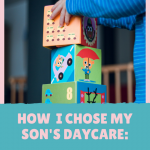Our decision to have a baby came about three years after we were married. Initially, we planned to do a whole list of things (including buying a house) and then start trying. But on the night of January 5, 2002 while driving home from the hospital after visiting our friends’ newborn baby, I told him, “That’s it. I want to start trying.” Exactly one year and four days later on January 9, 2003 we were blessed with twins: a boy and a girl.
As much as we hate to admit it, we really do turn into our parents. Their successes and failures become our instincts as we stumble through the uncharted territory of raising children. Without even thinking about it we fall into those same parenting patterns–which can be good–but it also means that we need help breaking away from those behaviors if they happen to be unhealthy.
Because we rely so much on our own upbringing to define our ideas of parenting, it stands to reason that there would be some conflicts when two parents come from two cultures as different as Pakistan and the U.S. This starts from birth, but becomes far more pronounced as they grow and we start talking to them about ideas like spirituality, sexuality, and social norms. My kids are nine-years-old now and while some things have become easier (they can do their own laundry now), the lessons they are beginning to learn now make the stakes feel much higher.
My husband made the choice to emigrate to the U.S. and he sees a lot of value in our society, so he is not interested in keeping them in a cultural bubble, associating only with other Pakistani and/or Muslim children. But at the same time, he has very specific ideas about how they should behave, what their education should look like, table manners, attitude, and appearance. And so do I. Sometimes, though, our strong opinions clash, and that’s when compromise comes in.
I think every parent has ‘deal-breakers’, or things they absolutely will not tolerate when it comes to their children. Everything else, however, should be up for compromise, especially if it’s important to your spouse. Over time, my husband and I have had to find a middle ground and find a way to let one another have the final say in discipline, rewards, or teaching things we each find important.
It’s been a challenge but not a hard one. Regardless of our occasional differences of opinions on parenting, we are both united in the idea that we really want the best for our children. Rather than pulling us apart, our children have made us to come together and find ways to work together for their benefit. We relish our shared gift of parenthood, which is both humbling and empowering.
But sometimes I worry that my husband and his family will be disappointed because our children aren’t “Pakistani” enough. And then, I worry that they will cling to their Pakistani identity and discount the value of their American heritage. I worry that my children will grow up and not fit in to either Pakistani culture or American culture, leaving them conflicted. I worry that they will be ignored, laughed at, overlooked, or undervalued because they are the product of a mixed-race marriage.
Then. I stop and watch them for a few minutes. And they are so much more amazing than I will ever be: a perfect blend of two cultures, two people, two families: confident, proud, and intelligent. Their sweet eyes are honest, full of life, and they give me hope that differences in people and cultures don’t have to produce conflict. They can produce something very, very beautiful instead.
And suddenly, I’m not worried anymore.
Amanda Quraishi
Amanda Quraishi is a writer, technology professional, and interfaith activist living in Austin, Texas. Follow her blog, muslimahMERICAN, and her adventures on Twitter: @ImTheQ.











